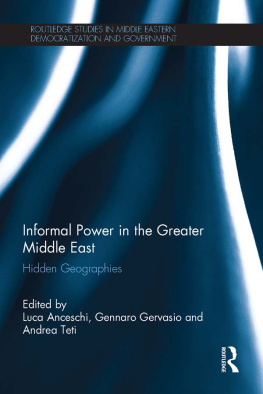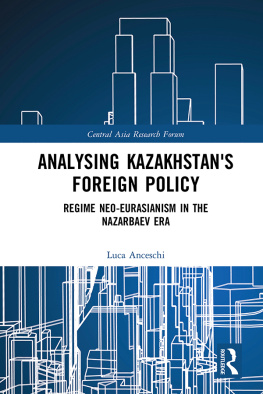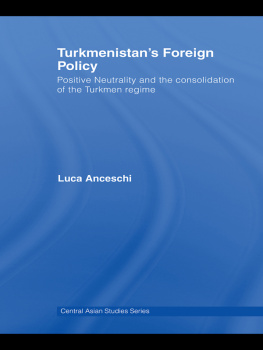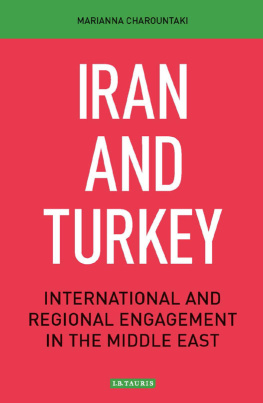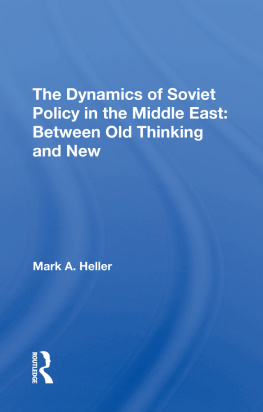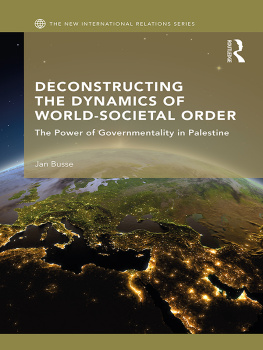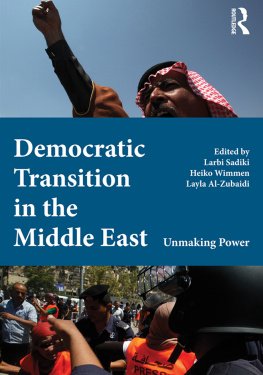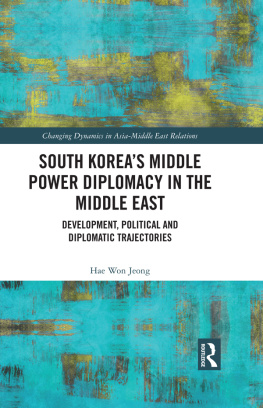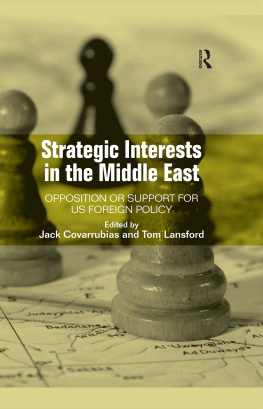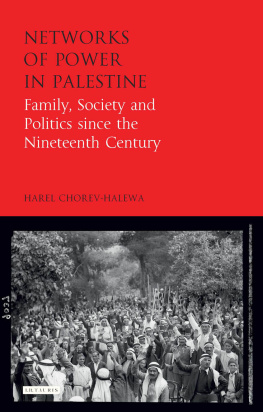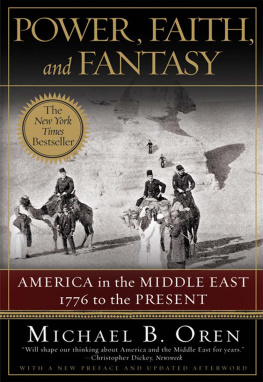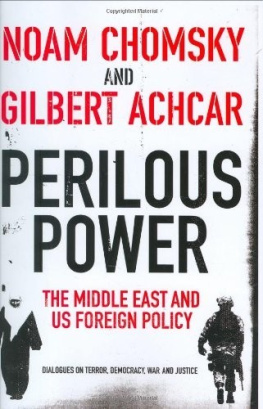Informal Power in the Greater Middle East
Over the last decade or so, academic and non-academic observers have focussed mainly, if not exclusively, on the institutions and places of formal power in the Greater Middle East, depicting politics in the region as a small area limited to local authoritarian rulers.
In contrast, this book aims to explore the hidden geographies of power, i.e. the political dynamics developing inside, in parallel to, and beyond institutional forums, arguing that these hidden geographies play a crucial role, both in support of and in opposition to official power. By observing less-frequented spaces of power, co-option, and negotiation, and particularly by focusing on the interplay between formal and informal power, this interdisciplinary collection provides new insights in the study of the intersection between policy-making and practical political dynamics in the Greater Middle East.
Contributing a fresh perspective to a much-discussed topic, Informal Power in the Greater Middle East will be an invaluable resource for students, scholars and those interested in the politics of the region.
Luca Anceschi is Lecturer in Central Asian Studies at the University of Glasgow, UK. A graduate of the University of Napoli LOrientale and of La Trobe University, he specializes in the international politics of post-Soviet Central Asia. His most recent book is Turkmenistans Foreign Policy: Positive Neutrality and the Consolidation of the Turkmen Regime (Routledge 2008).
Gennaro Gervasio is Lecturer in Middle East Politics at the British University in Egypt. His main research interests include Egyptian history and politics, the political role of the Arab intellectuals, social and protest movements in North Africa, and the politics of the Arab media. His latest monograph is al-Haraka al-Mrkisiyya fi Misr 19671981 (The Marxist movement in Egypt, 196781), published in 2010.
Andrea Teti is Lecturer in International Relations and Director of the Centre for Global Security and Governance at the University of Aberdeen, UK, as well as Senior Fellow at the Brussels-based European Centre for International Affairs. His research and publications examine democracy and democracy-promotion in the Middle East, the politics of knowledge production, post-structuralist theory, and the history of Social Science. His current work focuses on European democracy assistance to the Middle East and North Africa, with particular reference to Egypt.
Routledge Studies in Middle Eastern Democratization and Government
Edited by:
Larbi Sadiki, University of Exeter
This series examines new ways of understanding democratization and government in the Middle East. The varied and uneven processes of change, occurring in the Middle Eastern region, can no longer be read and interpreted solely through the prism of Euro-American transitology. Seeking to frame critical parameters in light of these new horizons, this series instigates reinterpreta-tions of democracy and propagates formerly subaltern narratives of democratization. Reinvigorating discussion on how Arab and Middle Eastern peoples and societies seek good government, Routledge Studies in Middle Eastern Democratization and Government provides tests and contests of old and new assumptions.
Revolution, Revolt and Reform in North Africa
The Arab Spring and Beyond
Edited by Ricardo Ren Larmont
Informal Power in the Greater Middle East
Hidden Geographies
Edited by Luca Anceschi, Gennaro Gervasio and Andrea Teti
Informal Power in the Greater Middle East
Hidden Geographies
Edited by
Luca Anceschi, Gennaro Gervasio
and Andrea Teti
First published 2014
by Routledge
2 Park Square, Milton Park, Abingdon, Oxon OX14 4RN
and by Routledge
711 Third Avenue, New York, NY 10017
Routledge is an imprint of the Taylor & Francis Group, an informa business
2014 Luca Anceschi, Gennaro Gervasio and Andrea Teti for selection and editorial matter; individual contributors, their contributions
The right of the editors to be identified as the authors of the editorial material, and of the authors for their individual chapters, has been asserted in accordance with sections 77 and 78 of the Copyright, Designs and Patents Act 1988.
All rights reserved. No part of this book may be reprinted or reproduced or utilised in any form or by any electronic, mechanical, or other means, now known or hereafter invented, including photocopying and recording, or in any information storage or retrieval system, without permission in writing from the publishers.
Trademark notice: Product or corporate names may be trademarks or registered trademarks, and are used only for identification and explanation without intent to infringe.
British Library Cataloguing in Publication Data
A catalogue record for this book is available from the British Library
Library of Congress Cataloging in Publication Data
Informal power in the greater Middle East : hidden geographies / edited by
Luca Anceschi, Gennaro Gervasio, and Andrea Teti.
pages cm. -- (Routledge studies in Middle Eastern democratization and government)
Includes bibliographical references and index.
1. Middle East--Politics and government--21st century.
2. Political participation--Middle East. 3. Political socialization--Middle
East. 4. Political culture--Middle East. I. Anceschi, Luca, 1976-, author, editor of compilation. II. Gervasio, Gennaro, author,
editor of compilation.
III. Teti, Andrea, author, editor of compilation.
JQ1758.A91I63 2014
320.956--dc23
2013030681
ISBN: 978-0-415-62436-7 (hbk)
ISBN: 978-1-315-81830-6 (ebk)
Typeset in Times New Roman
by Taylor & Francis Books
Contents
ANDREA TETI, GENNARO GERVASIO AND LUCA ANCESCHI
PART I
Redistributing Power Relations through Informal Alliances
LARBI SADIKI
LORENZO TROMBETTA
MASSIMO ALONE
GENNARO GERVASIO AND ANDREA TETI
GOKHAN BACIK
PART II
Radicalization and Conflict
ARSHIN ADIB-MOGHADDAM
NOAH R. BASSIL
BENJAMIN ISAKHAN
VALERIA SAGGIOMO
PART III
Resistance, Co-optation, Centralization
EMANUELA DALMASSO
LUCIA SORBERA
MICHELANGELO GUIDA
LUCA ANCESCHI
ANDREA TETI
The idea for this volume emerged during informal discussions among the co-editors in Naples in 2007/08. The first outcome of these talks was the publication of an article by Gennaro Gervasio in early 2009, outlining the main ideas of the research project (Geografia dei poteri informali in Medio Oriente [Geographies of Informal Powers in the Middle East], Limes. The Italian Review of Geopolitics, 13 (1): 13542). The project then took the more formal shape of a series of panels organized at the Third World Congress of Middle East Studies (WOCMES), held at the Universitat Autonoma in Barcelona in July 2010, in which most of the authors of the present volume participated, enhancing the original ideas with very fruitful discussions. The Arab Uprisings, which began only a few months later, provided editors and contributors with both a challenge and a new opportunity to bring to bear the analysis of the relationship between formal and informal power developed in earlier discussions upon unfolding events, including some significant and illuminating examples of

